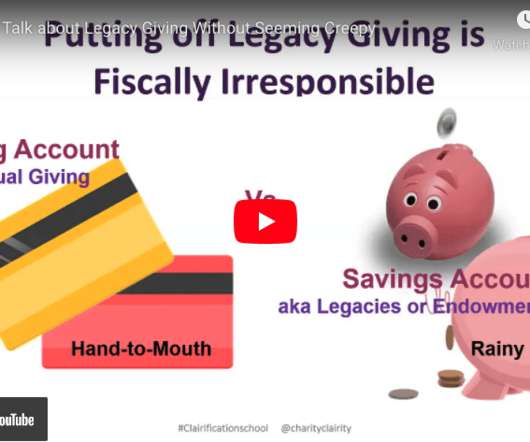How to Make the Ask of a Gift in a Will Less Scary
iMarketSmart
FEBRUARY 27, 2023
2] More than that, the reality of our own death is a serious psychological problem. For example, death reminders make people more protective of their social group – and more resistant to outside groups.[5] 5] Group opinions and social “norms” become more powerful.[6] It provides motivation. Simple answer. What do we say?












Let's personalize your content